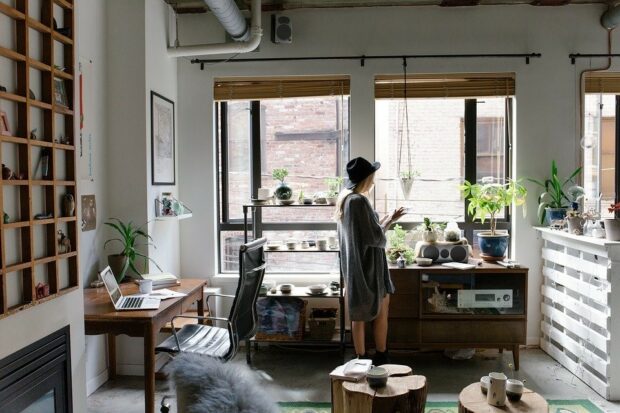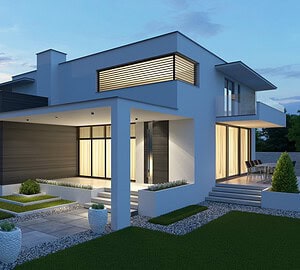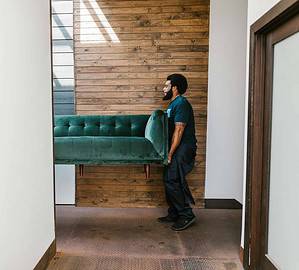2020 will certainly go down in the history books as a very unusual year – and we’re only halfway through! There is a potential silver lining for many workers, however, in that the ‘forced experiment’ of remote-working across many parts of the world; has in the main, demonstrated that most businesses can function just as well and sometimes more efficiently, by allowing people to work from home. This is good news those juggling schedules as a parent and as a full-time worker, it may also be good news for the environment. With transportation accounting for around 30% of all greenhouse gas emission according to epa.gov (report can be found here), more remote working should mean less pollution, especially in city centres.
If you want to take your new environmentally friendly working lifestyle one step further – why not look to create a home office, that is powered by renewable energy?

Solar Panels
Warning – Always consult a professional installer or electrician – fire or electric shock can result from incorrectly installed electrical systems.
If you can create your office using an outbuilding, this may be a great opportunity to attempt setting up a very simple solar panel system to power the lighting and heating. Many people have been showing off their shed-conversions on Linkedin for example, with some amazing transformations.
Using solar panels is done with either a “Grid-Tied setup” or an “Off-Grid setup”. The main difference relates to whether or not you are going to charge batteries to store the energy produced.
For an off-grid system, you will need
– Solar Panel(s)
– A Charge Controller
– A Battery
If you just want to practice rigging up a solar panel and powering a single lightbulb, almost as a test-project for attempting something bigger later on, then you can use a solar panel as small as a 10 watt one.
In a standard Direct Current system, the solar panel needs to be connected to something called a “Charge Controller”. You simply connect the red wire from the solar panel – which is positive – to the positive inlet on the Charge Controller, and the black wire, which is negative, to the negative inlet.
Connect the charge controller to the battery – red is positive and black is negative. Finally, you connect the charge controller to the device that you want to charge.
For a Grid-Tied System/Inverted System you will need:
– Solar Panel(s)
– An inverter
– A professional electrician or installation expert
The inverter converts the DC power from the solar panel into AC power to be used in the home or office. If you make a mistake with AC power, it can be very dangerous, so hire a professional.
A great example of a setup on an outbuilding is shown in this video:
https://www.youtube.com/watch?v=Sc8bX4sNje0
In this example, he has used a single, 12-volt solar panel to power the light in his shed.
If you are concerned about the look of your office, then you can buy solar panels that are designed to look good. You can choose black frames to blend in better with a dark colored roof – although silver frames do tend to be more affordable.
You can also buy solar roof tiles and ‘skins’ to make the panels blend in with your roof.
You can also use ground-mounted solar panels if you are concerned that a roof-mounted solar panel system may impact the curb appeal of your property.
Micro Wind Turbine
Warning – please consult or hire a professional before installing any kind of electrical system on your office
A common alternative to solar power is the installation of a wind turbine. A ‘micro wind turbine’ can be purchased for a few hundred dollars and can provide enough power to light and heat a small office – depending of course, on how much wind you get in your area!
A wind turbine can potentially produce energy 24 hours a day, unlike solar panels. You can easily combine solar panels with wind turbines as well.
Typically, on an “AC Output” micro wind turbine you will have 3 cables coming off the base of the stand. These cables need to be connected to a ‘rectifier’ to convert AC into DC power.
The rectifier then simply connects to your appliance or battery bank.
This video provides a great introduction to wind turbines for the home:
https://www.youtube.com/watch?v=opP13e-TvHM
Upcycle & Create a Stylish Interior
Once you have connected your renewable energy source, you may need to purchase some new furniture for your office. If possible use sustainable materials or repurposed materials.
Skis repurposed into a seat
It can be equally as environmentally friendly; to upcycle and buy a rundown piece of office furniture from a website such as Facebook or even from a landfill-shop or second-hand shop and add a few coats of paint and some additional finishing touches to create your own, bespoke and individual piece of furniture.
Office plants, of course, will bring life and energy into your home office. House plants such as ‘Motherinlaw’s Tongue’ can significantly improve the quality of the air in your office. However, in terms of being eco-friendly, there’s no real way to transport your house plant, to your office, without the use of fossil fuels. With this in mind, if possible, consider growing your plants in your house or garden and then add them to your office when ready!
Hire a Remote Receptionist
No stylish office would be truly complete without a receptionist. If you run your own business and want to work from home, it might be worth looking to outsource a few roles. Outsourcing the role of a full-time receptionist for example, and using a virtual receptionist can save you a substantial amount of money, be good for your brand & level of customer service whilst also being good for the environment.
Moneypenny offer a service that includes 24/7 cover – this can be great if you have family or just don’t want to be interrupted after office-hours.




